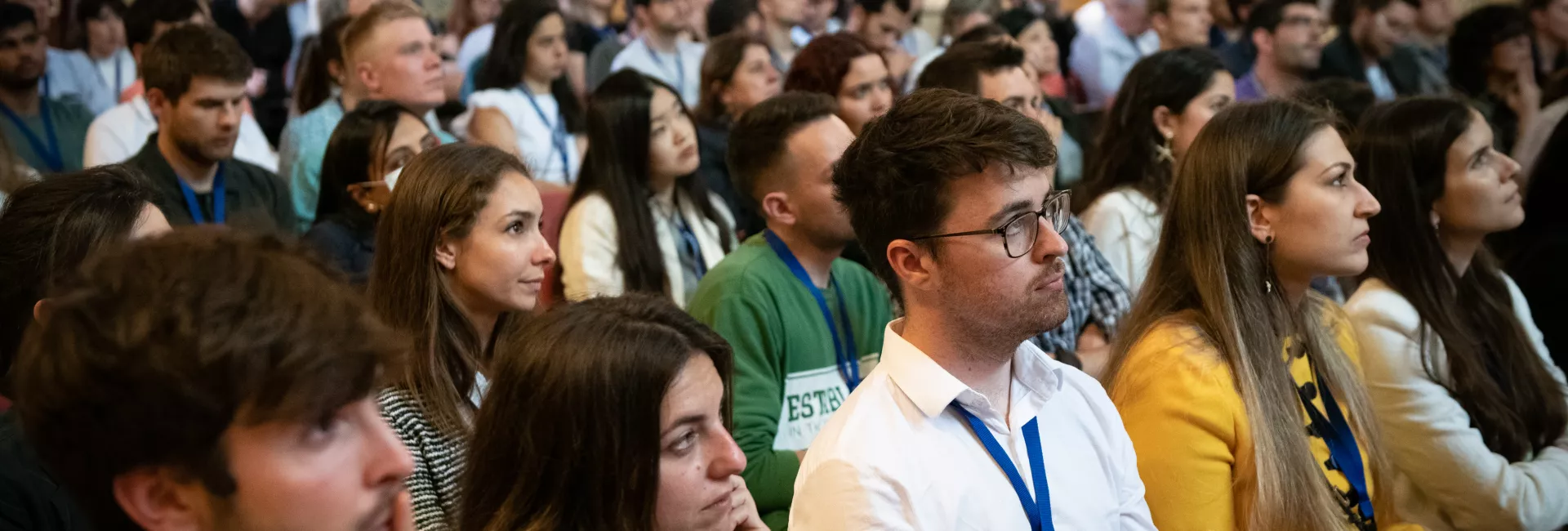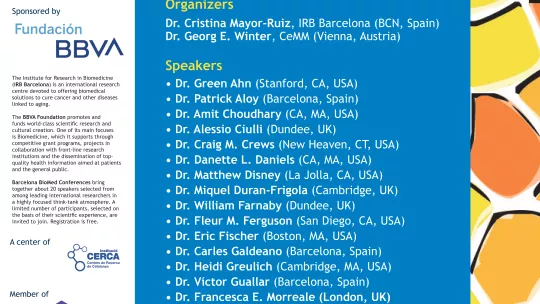Proximity-inducing pharmacology has become an important avenue of therapeutic intervention and offers significant inroads to drug the “undruggable”. Mechanistically, the involved compounds often hijack one protein’s function by inducing its interaction with another protein or transcript. Recent advances in targeted protein degradation illustrate that compound-induced proximity between an E3 ubiquitin ligase and a disease-relevant protein can lead to ubiquitination and protein degradation. In the past years, this growing field has moved from proof of concept to the development of degrader medicines in clinical trials. These advances have fueled interest in other proximity-inducing concepts that can trigger a plethora of outcomes in proteins and transcripts, ranging from mammals to bacteria. As our understanding of the molecular features that govern drug-induced interactions grows and the use of this pharmacology in disease matures, more breakthroughs are sure to follow. This conference will provide an interdisciplinary forum for researchers interested in the chemical modulation of biomolecule’s fates. Leaders in many areas of drug discovery will discuss the opportunities and challenges in this exciting new area.
Presentation
Conference organizers
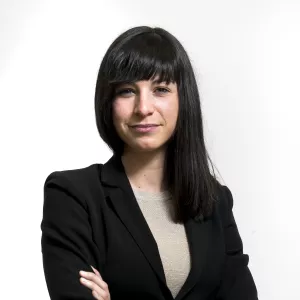
Dr. Cristina Mayor-Ruiz
IRB Barcelona
Barcelona, Spain
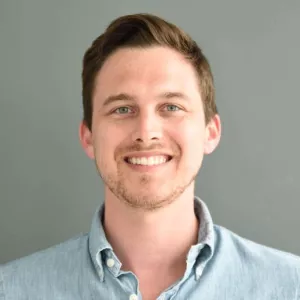
Dr. Georg E. Winter
CeMM
Vienna, Austria
There is no registration fee for this conference, but the number of participants is limited, with a number of seats saved for IRB Barcelona alumni. Previous registration is required.
Due to the high demand for participation in this conference, the registration deadline has been brought forward on Wednesday (15 February).
Priority will be given to those who submit the highest quality abstracts for short talks or posters and the order of registration will be considered. We will contact all those registered very soon.
Abstracts should include a title, authors, affiliations, summary (max 250 words) and references
REGISTRATION DEADLINE: 15 FEBRUARY, 2023
(Note: Any issue about the registration or abstract, please contact: meritxell.gavalda@irbbarcelona.org)
Programme
Monday, 22 May
8.30 Registration
9.00 Welcome by Directorate of IRB Barcelona and organizers
(Dr. Cristina Mayor-Ruiz and Dr. Georg E. Winter)
Session 1: Proteolysis Targeting Chimeras (PROTACs)
Chair: Dr. Marie-Helene Larraufie (Barcelona, Spain)
9.15 Interrogating the Druggable Proteome with Proximity Pharmacology
Dr. Fleur M. Ferguson, University of California San Diego (San Diego, CA, USA)
9.45 Targeted Protein Degradation at the academic-industry interface
Dr. William Farnaby, University of Dundee (Dundee, UK)
10.15 Advancing targeted protein degraders and bringing them into the clinic
Dr. Danette L. Daniels, Foghorn Therapeutics (CA, MA, USA)
10.45-11.30 Coffee break and poster session
11.30 Short talk 1: Directing the E3 ligase pair SIAH1/2 towards degradation of neosubstrates using covalent PROTACs
Dr. Lena Münzker, Boehringer Ingelheim RCV GmbH & Co KG (Vienna, Austria)
11.45 How PROTACs Work: Molecular Recognition and Design Principles
Dr. Alessio Ciulli, University of Dundee (Dundee, UK)
12.15 What’s Next? Looking beyond PROTACs
Dr. Craig M. Crews, Yale University (New Heaven, CT, USA)
12.45 Short talk 2: An intramolecular bivalent degrader glues an intrinsic BRD4-DCAF16 interaction
Dr. Angus Cowan, University of Dundee (Dundee, UK)
13.00-14.30 Lunch and poster session
Session 2: Molecular glues
Chair: Dr. Jay Bradner (CA, MA, USA)
14.30 Chasing molecular glues and overcoming broad resistance to degraders
Dr. Cristina Mayor-Ruiz, IRB Barcelona (Barcelona, Spain)
15.00 Short talk 4: BTBBCL6 dimers as building blocks for reversible drug-induced protein oligomerization
Dr. Mikołaj Słabicki, Broad Insitiute (Cambridge, MA, USA)
15.15 Identification and characterization of small-molecule degraders
Dr. Georg E. Winter, CeMM (Vienna, Austria)
15.45-16.45 Coffee break and poster session
16.45 Short talk 3: Understanding cooperativity effects in the drug-dependent degradation of the Cereblon neosubtrate CK1 alpha
Dr. Jordi Juárez-Jiménez, UB (Barcelona, Spain)
17.00 Design principles for cyclin K molecular glue degraders
Dr. Nicolas Thomä, FMI (Basel, Switzerland)
17.30 Mechanism of action of velcrin small molecules
Dr. Heidi Greulich, Broad Institute (Cambridge, MA, USA)
18.00 End of session
Tuesday, 23 May
Session 3: Targeted degradation beyond the proteasome
Chair: Dr. Ingo Hartung (Darmstadt, Germany)
9.00 Targeting extracellular and membrane proteins for degradation via lysosome targeting chimeras (LYTACs)
Dr. Green Ahn, Stanford University (Stanford, CA, USA)
9.30 BacPROTACs mediate targeted protein degradation in bacteria
Dr. Francesca E. Morreale, IMP, The Francis Crick Institute (London, UK)
10.00 Short talk 5: Development of next generation AUtophagy TArgeting Chimeras (AUTACs) to enable proximity induced degradation of mitochondria
Niyaz Zaman, University College London (London, UK)
10.15 Short talk 6: Multicomponent Reaction-Based Approach to Novel Aryl Hydrocabon Receptor Activators, PROTACs and HomoPROTACs
Dr. Ouldouz Ghashghaei, IBUB- UB (Barcelona, Spain)
10.30-11.30 Coffee break and poster session
11.30 Short talk 7: Induced self-elimination of the Clp protease system as antibiotics strategy
Dr. David M. Hoi, Institute of Molecular Pathology (Vienna, Austria)
11.45 Targeting unexplored E3 ligases with small molecules
Dr. Carles Galdeano, UB Barcelona (Barcelona, Spain)
12.15 Target degradation of disease-causing RNAs with ribonuclease targeting chimeras (RiboTACs)
Dr. Mathew Disney, UF Scripps Biomedical Research (La Jolla, CA, USA)
12.45-14.30 Lunch and poster session
Session 4: Inducing and removing post-translational modifications: ubiquitin and
beyond
Chair: TBD
14.30 Two new ways to drug targets
Dr. Sayumi Yamazoe, Bristol-Myers Squibb (CA, USA)
15.00 Reimagining Druggability using Chemoproteomic Platforms
Dr. Daniel K. Nomura, University of California, Berkeley (Berkeley, CA, USA)
15.30 Short talk 8: Development of a novel type of proteolytic chimera based on direct 26S proteasome targeting
Dr. Bernat Crosas, IQAC-CSIC (Barcelona, Spain)
15.45 Short talk 9: E3-ID: an innovative system to identify targets of E3 ligases
Dr. James D. Sutherland, CIC bioGUNE (Bizkaia, Spain)
16.00-16.45 Coffee break and poster session
16.45 Protein editing using small molecules
Dr. Amit Choudhary, Broad Institute (CA, MA, USA)
17:15 Chemoproteomic-Enabled Development of Proximity-Inducing Molecules
Dr. Christopher G. Parker, The Scripps Research Institute (La Jolla, CA, USA)
17.45 Short talk 10: HiBiT-SpyTag: A minimal tag for covalent protein capture and degrader development
Dr. Radosław P. Nowak, Dana-Farber Cancer Institute (Boston MA, USA)
18.00 End of session
20.30 Speakers dinner (Restaurant Can Pineda) (Sant Joan de Malta, 55)
Wednesday, 24 May
Session 5: Proximity-inducing pharmacology: new approaches and computational
methods
Chair: Dr. Modesto Orozco (Barcelona, Spain)
9.00 Short talk 11: Target- and E3-driven discovery of molecular glue degraders via accelerated molecular simulations
Dr. Carles Perez-Lopez, IRB Barcelona (Barcelona, Spain)
9.15 Short talk 12: Finding all our switches: fast global mapping of the allosteric landscape for KRAS inhibition
Dr. Ben Lehner, Wellcome Sanger Institute & CRG (Barcelona, Spain)
9.30 Assessing ternary complex formation for protein degradation
Dr. Víctor Guallar, BSC (Barcelona, Spain)
10.00 Blending Chemistry and Biology to Enable Systems Pharmacology
Dr. Patrick Aloy, IRB Barcelona/ ICREA (Barcelona, Spain)
10.30-11.15 Coffee break and poster session
11.15 Short talk 13: Supercharging kinase turnover – rationalizing non-obvious destabilization mechanisms
Dr. Natalie S. Scholes, CeMM (Vienna, Austria)
11.30 Short talk 14: Transcriptional chemical inducers of proximity to rewire cancer drivers
Sai Gourisankar, Stanford University (Stanford, CA, USA)
11.45 AI/ML-enabled global ligandability maps allow quantitative and qualitative drug interactome predictions
Dr. Miquel Duran-Frigola, Ersilia Open Source Initiative (Cambridge, UK)
12.15 Short talk 15: DEGRONOPEDIA - a web server for proteome-wide inspection of degrons
Natalia A. Szulc, IIMCB (Warsaw, Poland)
12.30 Concluding remarks and end of conference
Venue
The BARCELONA BIOMED CONFERENCE Proximity-inducing pharmacology: Targeted protein degradation and beyond will be placed at the Casa Convalescència in the heart of Barcelona. Talks will take place in the Aula Magna.
Casa Convalescència
C/ Sant Antoni Maria Claret, 171
08041 Barcelona
Tel +34 934 335 000
www.uab-casaconvalescencia.org
How to reach the Casa Convalescència:
Underground
Yellow line (L4) - GUINARDÓ – HOSPITAL DE SANT PAU station
Blue line (L5) - SANT PAU – DOS DE MAIG station
By bus
Lines: 15, 19, 20, 45, 47, 50, 51, 92 and 192.
For the GPS
Introduce the following coordinates:
Latitude: 41.413702 (41° 24' 49.33'' N)
Longitude: 2.177482 (2° 10' 38.94'' E)
From the airport
* Train + Underground. At the RENFE station, take the train to Sants-Estació. Once there take the Underground's blue line (L5) till SANT PAU – DOS DE MAIG station.
* Bus + Underground. Outside the airport terminal, take the AEROBUS to Plaça Catalunya. Walk one corner till Plaça Urquinaona and take the Underground's yellow line (L4) to GUINARDÓ – HOSPITAL DE SANT PAU station.
Barcelona Metropolitan Transport webiste (with metro and bus maps)
Accomodation
Speakers will be lodged at the Hotel Catalonia Sagrada Familia
Aragó 577- 579
08026, Barcelona
Telephone: +34 93 245 89 05
www.cataloniahotels.com/en/
Other hotels
A list of additional hotels within walking distance of the Casa Convalescència can be found at: https://www.barcelona-tourist-guide.com/en/hotels/hotelmaps/eixample-right-barcelona-hotel.html
(The Casa Convalescència is located near the violet point 27/3 star). Rates will vary depending on choice of hotel and season. Please check with the hotel of your choice directly for the best offer.
Residences
Another possibility is the Lesseps Residence Hall, and is available for short-term stays.
Lesseps Residence Hall
Plaza Lesseps, 12 08023 Barcelona
View on map
Telephone: +34 933 941 600
e-mail: lesseps@resa.es
www.resa.es/en/city/barcelona
Participants registered for events in the Barcelona BioMed series should contact the hotels and residences directly to arrange bookings and payment.
Speakers
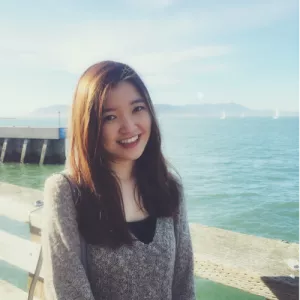
Dr. Green Ahn
Stanford University
Stanford, CA, USA
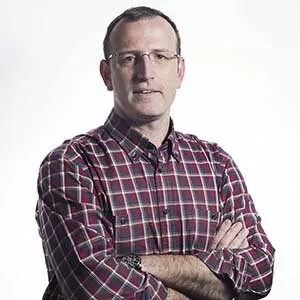
Dr. Patrick Aloy
IRB Barcelona
Barcelona, Spain
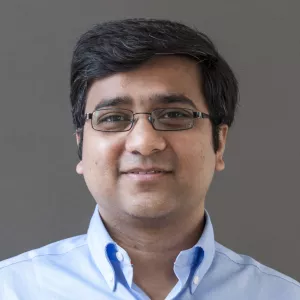
Dr. Amit Choudhary
Broad Institute
CA, MA, USA
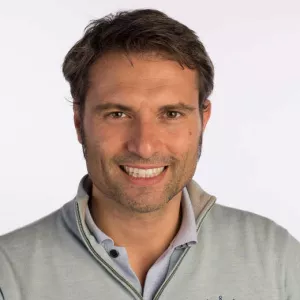
Dr. Alessio Ciulli
University of Dundee
Dundee, UK

Dr. Craig M. Crews
Yale University
New Heaven, CT, USA
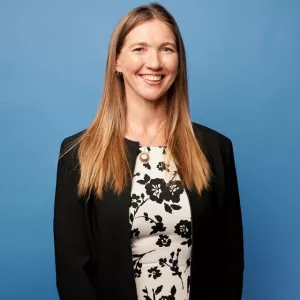
Dr. Danette L. Daniels
Foghorn Therapeutics
CA, MA, USA
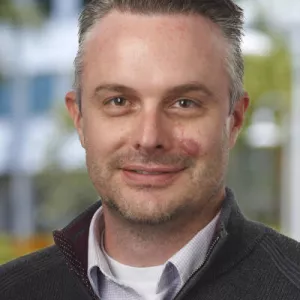
Dr. Matthew Disney
UF Scripps Biomedical Research
La Jolla, CA, USA
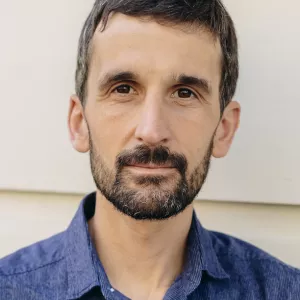
Dr. Miquel Duran-Frigola
Ersilia Open Source Initiative
Cambridge, UK
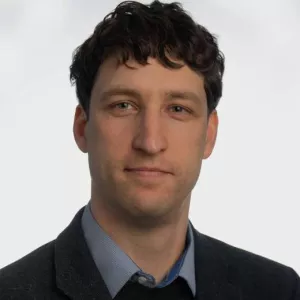
Dr. William Farnaby
University of Dundee
Dundee, UK
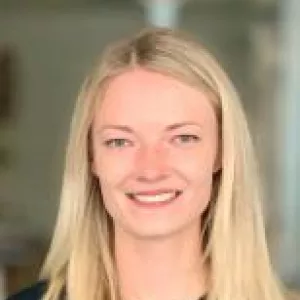
Dr. Fleur M. Ferguson
University of California San Diego
San Diego, CA, USA
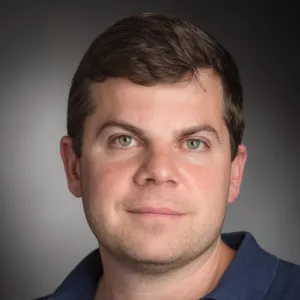
Dr. Eric Fischer
Dana-Farber Cancer Institute
Boston, MA, USA
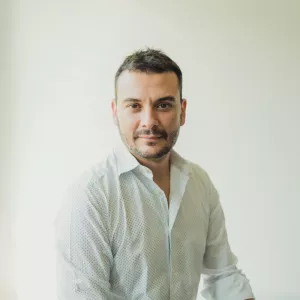
Dr. Carles Galdeano
UB Barcelona
Barcelona, Spain
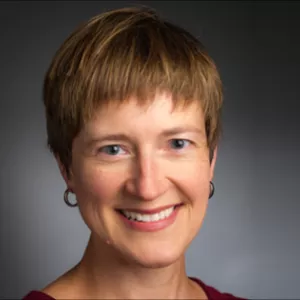
Dr. Heidi Greulich
Broad Institute
Cambridge, MA, USA
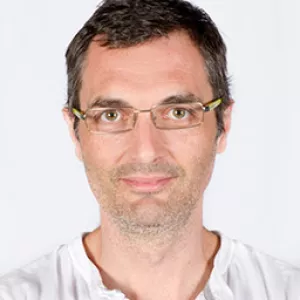
Dr. Víctor Guallar
BSC
Barcelona, Spain
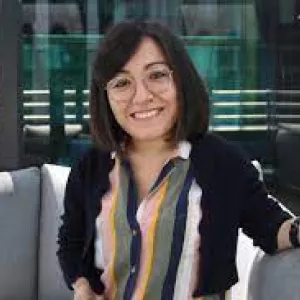
Dr. Francesca E. Morreale
The Francis Crick Institute
London, UK
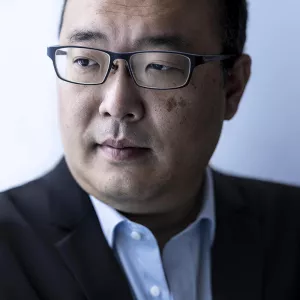
Dr. Daniel K. Nomura
University of California, Berkeley
Berkeley, CA, USA
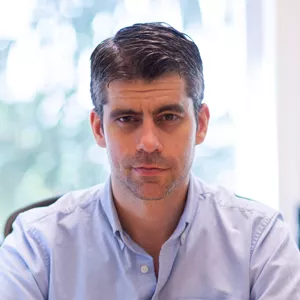
Dr. Christopher G. Parker
The Scripps Research Institute
La Jolla, CA, USA
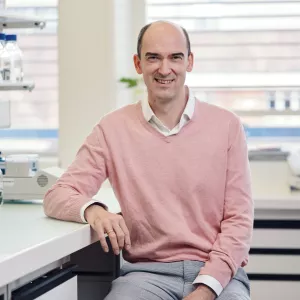
Dr. Nicolas H. Thomä
FMI
Basel, Switzerland

Dr. Sayumi Yamazoe
Bristol-Myers Squibb
CA, USA
Poster

